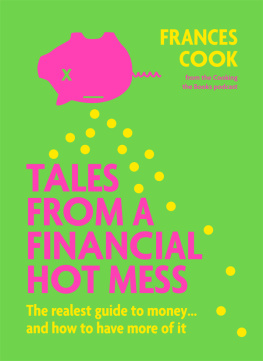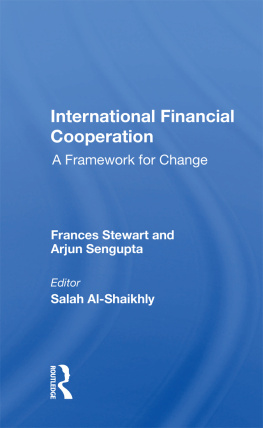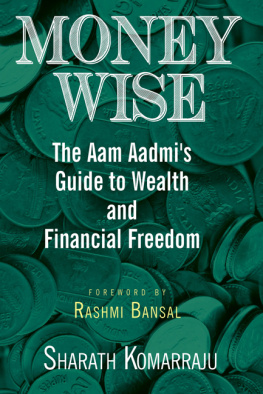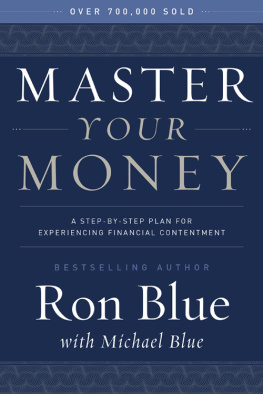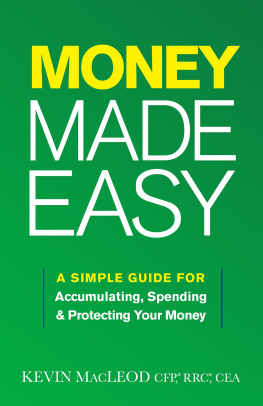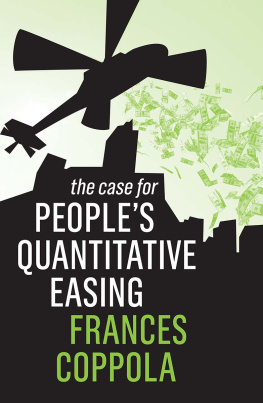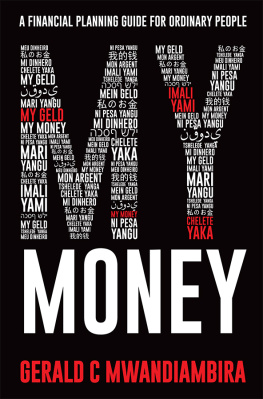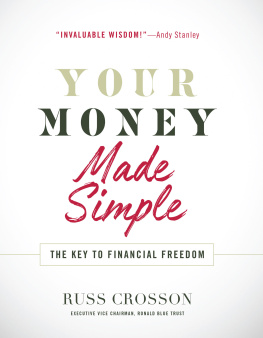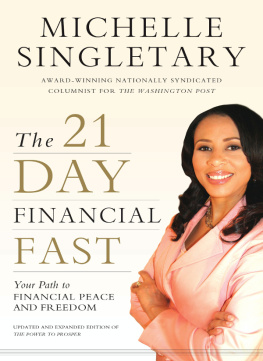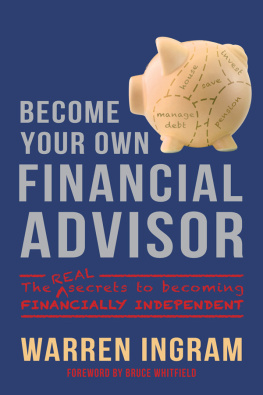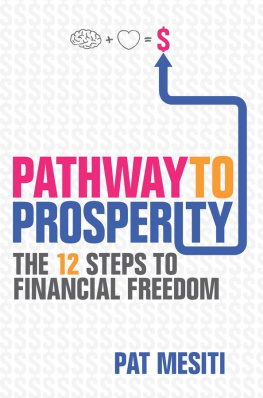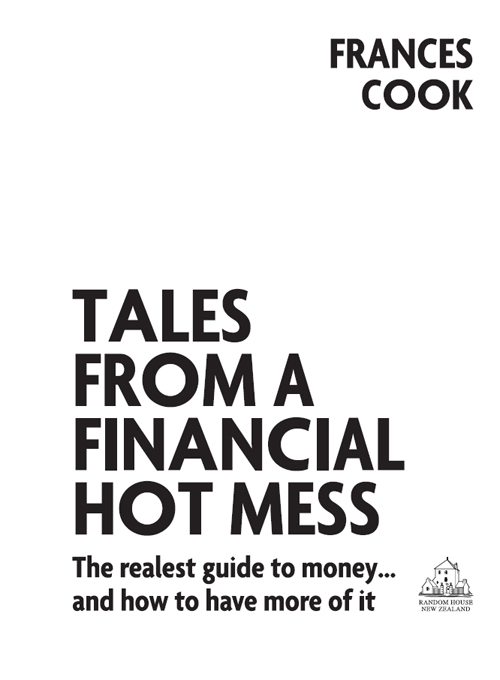The best time to plant a tree was twenty years ago.
The second-best time is today.
where you are.
Introduction
FOR YEARS I HAD a problem. I wasnt good with money. And it was affecting everything around me.
This isnt one of those I was $100,000 in debt, got out of it in one year, and you can too stories. I was just mediocre. Chugging along. Praying for a pay rise, getting one, then somehow not getting ahead. Impulse-buying things I knew I shouldnt, feeling bad, then hiding it from my husband. Not allowing myself a credit card, because I feared debt, feared my own relationship with money.
I knew I should have been doing better. I just had no clue where to start, and I certainly didnt realise I could have been living a much better life on the same money.
What I did have was a plan. Or, as my husband would say, rolling his eyes, I cooked up a scheme. I like schemes.
I decided to learn more about money, but on company time. Because heres the thing about being a journalist: the pay is rubbish, but the perks are amazing like being able to interview the countrys top financial minds for a personal finance podcast, while actually asking questions on how to fix my own money situation, which is exactly what I did.
This book isnt me pretending Ive now become a financial expert. Ive learned a lot, but Im no financial adviser. Im also not pretending my situation is the same as everyone elses; that would be silly. Im an average person, who earns a pretty average wage, who doesnt have a degree in business, but who managed to turn around my money relationship. I am now doing much, much better in life, with what I already had.
I interviewed a whole bunch of smart money people and extracted the best of their wisdom, which Im sharing here along with how it made a difference in my life. Some of it will hopefully be helpful to you. I hope that it might give you the confidence to start your own journey to doing better with your money. Then again, some of it may just make you laugh at the dumb assumptions I used to have, and thats okay too.
MOST OF US HAVE a vague feeling that we should be doing better with what we already have, and Im afraid that suspicion is right for all but the smallest minority of cases. The figures back that up. ANZs 2018 Financial Futures research showed that about three quarters of New Zealanders felt they were doing okay in terms of getting by day to day, but only 30 per cent of us feel like we have a handle on investing and getting ready for retirement.
That big gap in knowledge can weigh on us. Sure, were getting by today, but what about tomorrow? What if the unexpected happens and changes things today? Just dont think about it.
If youve ever had someone stand in front of you, telling you not to think about a pink elephant, youll know the only thing you can then think about is a pink elephant. So despite our best efforts not to think about it, that knowledge gap does weigh on us.
New Zealand Treasury figures from 2016 show that younger people are saving more today than the generation before them did when they were young. Treasury themselves said it was probably a response to the more uncertain times were living in. Its harder to get a full-time job now, nobody knows if there will be a pension by the time we retire, and home ownership feels more and more out of reach. As a result, the average person saves more out of a vague, disquieting sense of panic. But they dont know what to do with that money.
To which I would say: dont put it all in a savings account. Invest. Make your money go to work while you stay in bed. Break the chains from the nine-to-five job and the need for a pension. If theyre there, great, but we dont have to rely on them if we put a plan in place for our money. You can and should be the one in control, and once you take control of your money, youll be amazed how many other things in your life fall into place.
Investing can and should make the lives of ordinary people easier. When you know what youre aiming for, its a lot easier to do that other boring stuff like budgeting and saving in order to get yourself to the investments. You know that money will come back to you once youve put it somewhere smart.
The problem is nobody tells you where to start. Nobody tells you the easy, lazy ways to do it, so that it doesnt take over your life. You dont need a degree in this personal finance stuff, even though it looks that way from the outside.
This book deliberately tackles a variety of money topics in a particular order. You cant put the roof on your house if you havent built the walls yet, and you cant put up walls before the foundations are down. Nobody waxes lyrical about how much they love their homes foundations, but without them, you wont have that pretty kitchen for long. This book follows the order in which I addressed my own money issues, and Im pretty sure that order will work for most other people.

